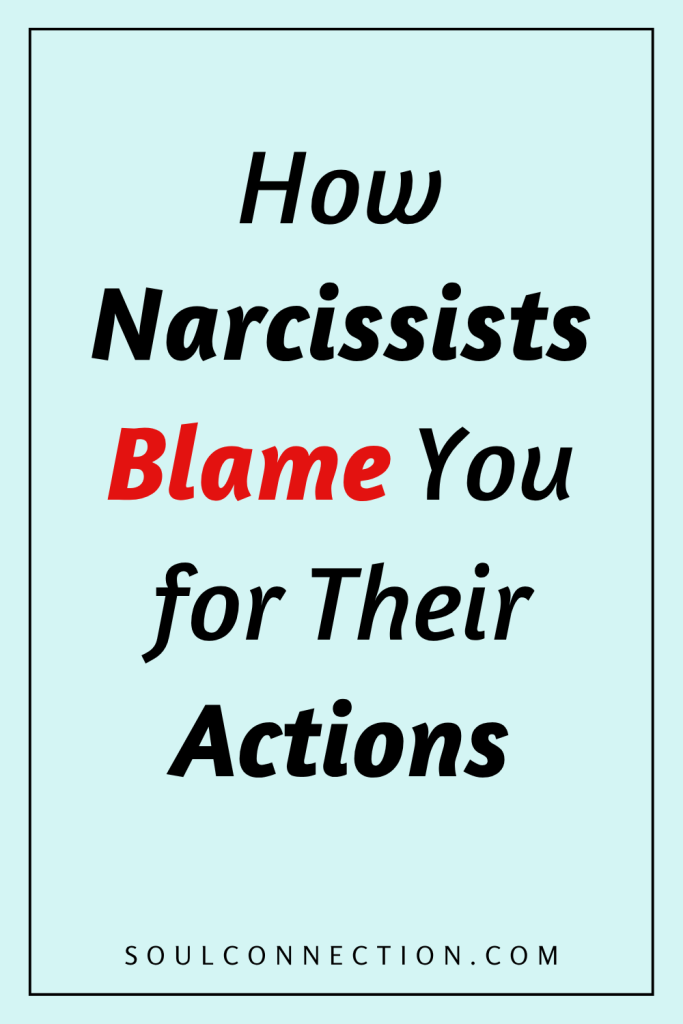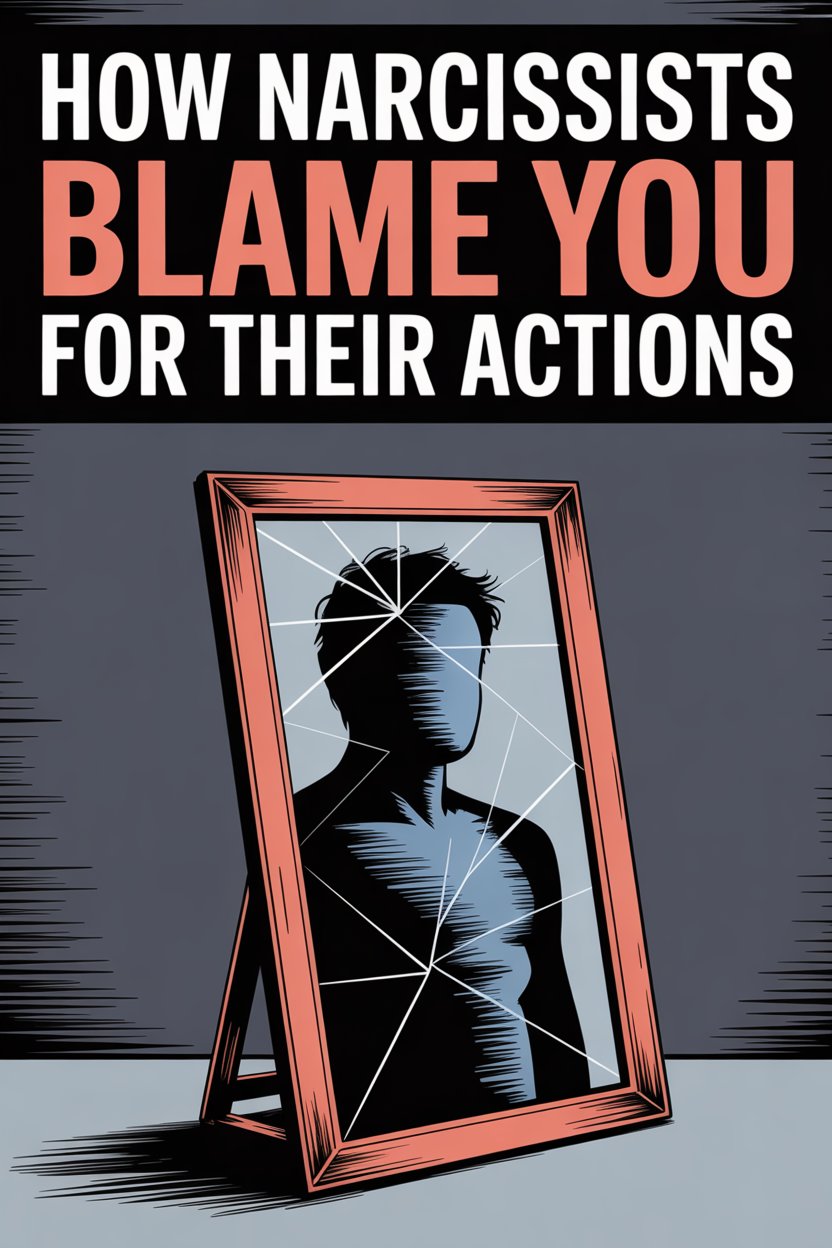Ever had an argument that left you feeling like you’d just been mugged?
Not for your wallet, but for your sanity? Welcome to the funhouse mirror world of narcissistic blame-shifting, where up is down, and somehow every misstep is your fault—even the ones you didn’t know were happening.
Grab a snack, because we’re unpacking how narcissists make Houdini-level escapes from accountability and leave you holding the bag.
The Art of Twisted Logic
Narcissists can twist logic into balloon animals. Their arguments start out sounding almost reasonable, then somewhere along the line, up becomes down and you’re the villain.
You ask your partner why they ignored your texts all day. Suddenly, you’re accused of being controlling or “making everything about you.” It’s like arguing in a hall of mirrors—distorted reflections everywhere, and you can’t find the exit.
This isn’t just stubbornness or bad debating skills; it’s a deliberate tactic. Narcissists don’t just avoid blame—they perform Olympic-level floor routines to fling it in your direction.
And if you’re not careful, you’ll be apologizing for things that happened before you even met.
Gaslighting and Rewriting the Script
Narcissists often mix blame-shifting with gaslighting. That means they don’t just accuse you of their mistakes—they actually rewrite history.
Bring up something hurtful they said? Suddenly, you’re “too sensitive,” or you “misunderstood.”
Sometimes, you’re even accused of causing the original problem. Forget about screenshots or receipts. To a narcissist, facts are more like suggestions.
This isn’t just frustrating; it can make you question your own sanity. If you’re constantly told your version of events is wrong, it’s easy to wonder if you’re the problem.
Spoiler: you’re not. You’re just caught in a psychological version of musical chairs, and the music never stops.
The Projection Game
Projection is the narcissist’s favorite pastime.
Cheating? They’ll accuse you of being unfaithful. Lashing out? They’ll say you’re the one with anger issues. It’s a bit like watching someone throw mud at a wall to see what sticks, only the wall is your self-esteem.
Projection isn’t just about avoiding guilt—it’s about keeping you on the defensive. If you’re too busy defending yourself against wild accusations, you won’t have time to notice who’s actually causing the chaos.
It’s psychological misdirection at its finest.
Emotional Booby Traps
Every time you try to address an issue, you step right into an emotional booby trap. Just when you think you have a fair and honest conversation in sight, the ground gives way.
Instead of discussing their actions, the narcissist will dredge up your past mistakes or perceived flaws. Suddenly, you’re stuck defending your 2014 bad haircut or that one time you forgot to feed the cat, and their original offense is long forgotten.
It’s not just about shifting the blame; it’s about keeping you off balance. If you’re always reacting, you’re never able to stand your ground. It becomes emotionally exhausting, and that’s exactly the point.
Playing the Victim Card
Narcissists are world-class thespians when it comes to victimhood. The moment they sense accountability creeping up, out come the waterworks and Oscar-worthy performances.
Suddenly, your attempt at honest communication is “an attack,” and they’re the ones wounded.
Cue the dramatic sighs, the wounded glares, perhaps even a walkout for dramatic effect. The goal? To make you feel guilty for even bringing up the issue. If you’re not careful, you’ll end up comforting them after they’ve hurt you.
Minimizing and Rationalizing
When all else fails, narcissists minimize their behavior. “It wasn’t that bad.” “Everyone does it.” “You’re overreacting.” These aren’t just excuses—they’re a strategy.
The more they can downplay their actions, the easier it is to sidestep responsibility and make you feel irrational for caring.
Every time you let something slide because “maybe it’s not a big deal,” the cycle tightens. The more you excuse, the more they push the boundaries.
Before you know it, you’re apologizing for things that wouldn’t even raise an eyebrow in any healthy relationship.
Isolation Tactics
Narcissists know that blaming and gaslighting work better when you’re isolated.
If they can convince you that friends and family wouldn’t understand, or that airing relationship grievances is “disloyal,” you’re more likely to doubt yourself. Maybe you even stop reaching out for reality checks.
The result? You’re marooned on an island of self-doubt, with the narcissist controlling the only lifeboat. And every time a wave hits, you’re expected to apologize for the storm.
Why It Works (And Why It Hurts)
Anyone can be manipulated by these tactics, not just the “gullible” or naive.
Narcissists are expert emotional pickpockets, skilled at leveraging your empathy, your hope for resolution, and your desire for a fair fight. Their confidence is so relentless it can make you second-guess the facts staring you in the face.
The hurt comes from the slow erosion of trust—not just in your partner, but in your own perception of reality. When you spend enough time getting blamed for someone else’s behavior, you start to wonder if you’re really the problem.
Breaking the Blame Cycle
Spotting the pattern is never easy—especially when you’re trapped in it. Still, there are ways to stop being the full-time scapegoat.
Start by keeping track of conversations. Write things down privately, in a journal or even a locked notes app. If nothing else, it’ll help you trust your memory when it gets fuzzy.
Set boundaries. The next time a conversation swerves straight into a blame-shifting ditch, pump the brakes. “We’re not talking about my tone right now.
We’re talking about what actually happened.” Yes, it’s awkward. No, you won’t win an argument with a narcissist. But you will stake out a little corner of reality that’s yours.
Resist the guilt trip. Just because someone is offended doesn’t mean you did something wrong. Their feelings are their own responsibility—especially if those feelings are being used as smoke and mirrors.
If you’re feeling isolated, reach out. Even a quick chat with a trusted friend can work wonders for your perspective.
Sometimes you just need someone to remind you that the sky is, indeed, blue.
When to Call Time
If every conversation ends with you feeling like a villain in your own life, it’s time to ask the tough question. Are you in a partnership, or a perpetual blame game hosted by your very own narcissist?
Nobody deserves to be perennially at fault for someone else’s behavior. And while some narcissists can change with serious commitment and therapy, many are simply too attached to their hall of mirrors.
Sometimes the bravest thing you can do is walk away from the blame and reclaim your sanity. Your peace of mind deserves nothing less.
Claiming Your Narrative
Blame-shifting is one of the most effective tools in a narcissist’s kit, but it’s not unbreakable. The moment you start trusting your gut again, setting boundaries, and reconnecting with people who value you, the magic trick starts to fizzle.
No one should have to apologize for things they didn’t do, or carry the weight of someone else’s mistakes. You are not the villain in their story, no matter how many times they flip the script.
Keep your head up. Stay sarcastic (when needed).
And remember: you get to write your own ending, not theirs.


